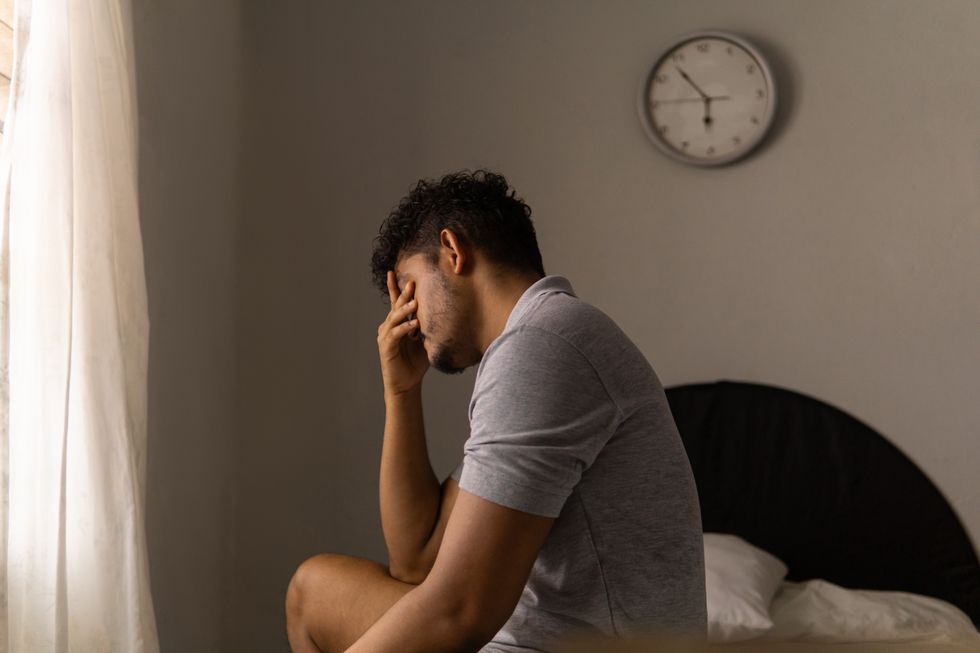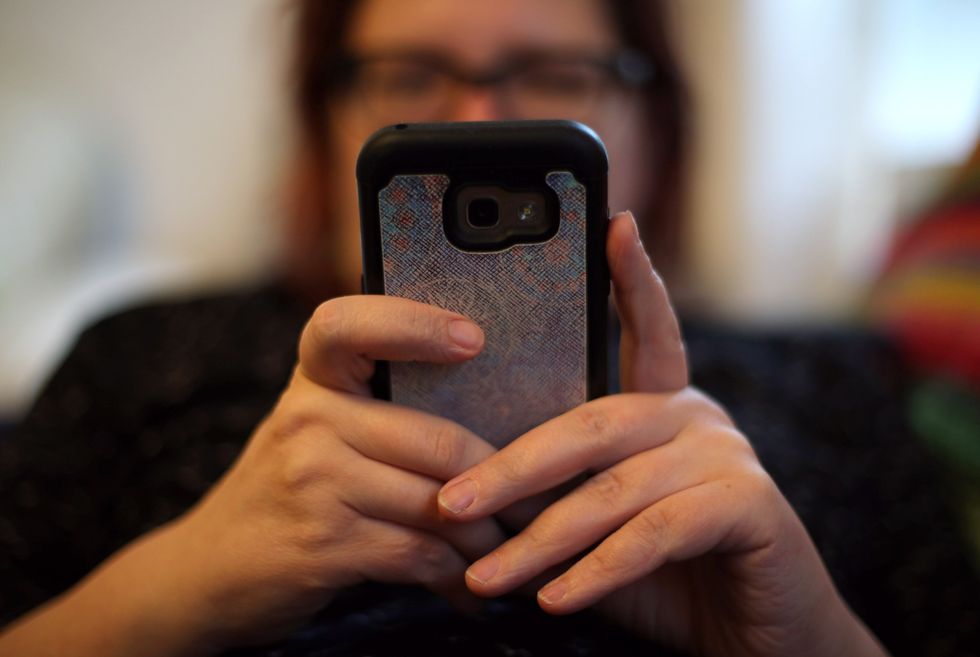Solen Le Net
Guest Reporter
Using a smartphone or tablet in bed for an hour could increase your risk of insomnia by 59 per cent, according to new Norwegian research.
The study also found that screen time before bed reduces sleep duration by about 30 minutes on average.
These findings highlighted the significant impact that bedtime technology use has on sleep quality and duration for young adults.
Researchers from the Norwegian Institute of Public Health analysed survey responses from more than 45,000 adults aged 18 to 28.

Participants reported their screen habits after going to bed, including duration and activities such as watching shows, gaming, social media, or reading.
"Surprisingly, we found that it's the overall screen time in bed that matters most, not the type of activity," said study author Dr Børge Sivertsen.
Social media scrolling was found to have no greater impact on insomnia risk than other screen activities.
Dr Sivertsen stressed that insomnia symptoms and reduced sleep duration were associated with increased screen use.
"Screen time at bedtime activates the mind," explained Dr Vishesh Kapur, director of sleep medicine at the University of Washington.
He noted that consuming interesting content may delay sleep, while disturbing material could make falling asleep difficult. Screens also emit blue light which can disrupt sleep patterns.
"Blue light from screens suppresses melatonin production, a hormone essential for initiating sleep," said Dr Nitun Verma, a sleep physician.
Sleep experts recommended several strategies to reduce screen use before bedtime, with Dr Verma advising against screen exposure 30 to 60 minutes before sleep and keeping brightness to a minimum when devices must be used.
LATEST DEVELOPMENTS

He suggested using built-in phone features like Night Shift to reduce blue light and Do Not Disturb to silence notifications.
Replacing screen time with relaxing activities such as reading a physical book or gentle stretching can also help. Using a traditional alarm clock instead of a phone alarm reduces the temptation to go online.
"Our study shows that even small reductions [in screen time] could improve sleep quality and duration," said Dr Sivertsen.
He emphasised that completely eliminating screens isn't necessary, but being mindful about usage is key.
"It's not about quitting screens entirely - it's about being mindful of how and when we use them, especially at night," Dr Sivertsen added.
Find Out More...
The study also found that screen time before bed reduces sleep duration by about 30 minutes on average.
These findings highlighted the significant impact that bedtime technology use has on sleep quality and duration for young adults.
Researchers from the Norwegian Institute of Public Health analysed survey responses from more than 45,000 adults aged 18 to 28.

Participants reported their screen habits after going to bed, including duration and activities such as watching shows, gaming, social media, or reading.
"Surprisingly, we found that it's the overall screen time in bed that matters most, not the type of activity," said study author Dr Børge Sivertsen.
Social media scrolling was found to have no greater impact on insomnia risk than other screen activities.
Dr Sivertsen stressed that insomnia symptoms and reduced sleep duration were associated with increased screen use.
"Screen time at bedtime activates the mind," explained Dr Vishesh Kapur, director of sleep medicine at the University of Washington.
He noted that consuming interesting content may delay sleep, while disturbing material could make falling asleep difficult. Screens also emit blue light which can disrupt sleep patterns.
"Blue light from screens suppresses melatonin production, a hormone essential for initiating sleep," said Dr Nitun Verma, a sleep physician.
Sleep experts recommended several strategies to reduce screen use before bedtime, with Dr Verma advising against screen exposure 30 to 60 minutes before sleep and keeping brightness to a minimum when devices must be used.
LATEST DEVELOPMENTS
- How to sleep better: The best exercise timing for optimal rest quality and duration
- Sleep hack: Over 60s told to try two exercises that may be 'key' to tackling insomnia
- Older adults are suffering a 'sleep decline' - 5 ways to drift off again if you wake up at night

He suggested using built-in phone features like Night Shift to reduce blue light and Do Not Disturb to silence notifications.
Replacing screen time with relaxing activities such as reading a physical book or gentle stretching can also help. Using a traditional alarm clock instead of a phone alarm reduces the temptation to go online.
"Our study shows that even small reductions [in screen time] could improve sleep quality and duration," said Dr Sivertsen.
He emphasised that completely eliminating screens isn't necessary, but being mindful about usage is key.
"It's not about quitting screens entirely - it's about being mindful of how and when we use them, especially at night," Dr Sivertsen added.
Find Out More...
